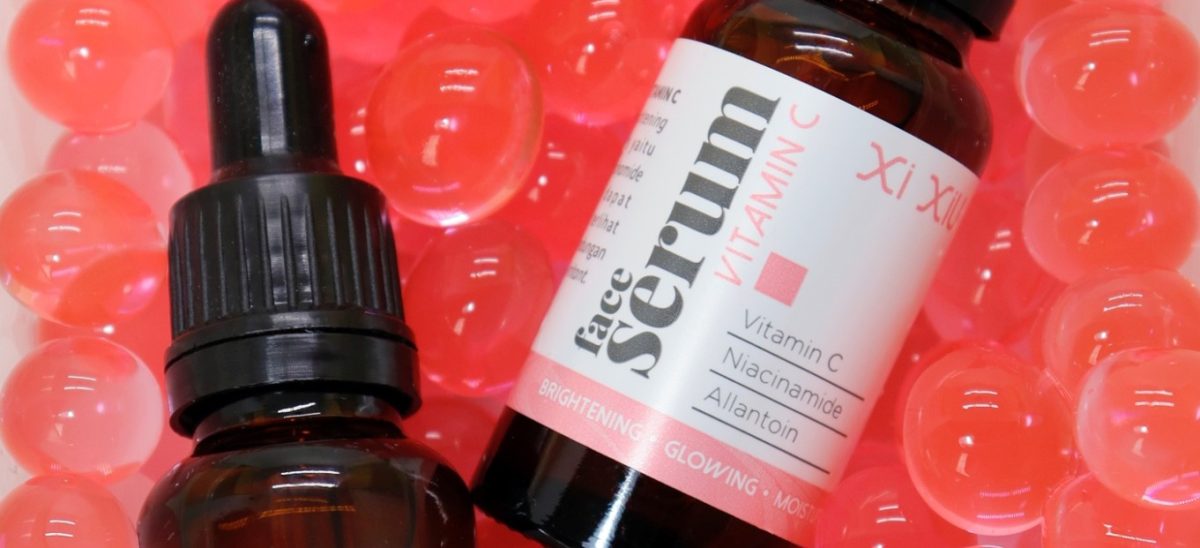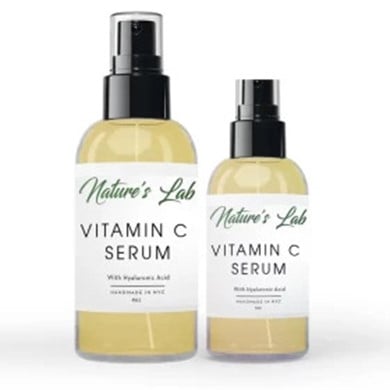Your skin is a canvas that tells your life story, We tend to overlook its importance when we are out there conquering our daily challenges, and in the midst of all this your skin health suffers and you deserve to ensure that this story is one of beauty, vitality, and confidence. While cleanser and moisturizing are the standard stuff they tend to be more straightforward in their purpose. In the realm of skincare, serums have emerged as the unsung heroes, packed with potent ingredients to address a multitude of skin concerns.
There are a few important question that arises in one’s mind when it comes to understanding the what, the importance, and the best course of action. Your skin health is like a farm, it needs a proper course of action and utmost care to be the skin you desire and Cura360 aims to provide you with all the answers that surround serums.
What are Serum
The Magic of serums lies in their ability to penetrate deep into your skin, delivering some of the most powerful compounds where they can work their wonders most effectively. They’re thinner in consistency compared to creams and lotions but loaded with high concentrations of active ingredients. These active ingredients can vary widely, from vitamins and antioxidants to peptides and hyaluronic acid and the best part about the serums is they’re customizable. Whether your skin goal is hydration, aging, fighting acne, or combating uneven skin tone, there’s likely a serum tailored to your specific needs. It’s like having a personal skincare specialist in a bottle.
Why do you need serum and how to choose one
As Cura360, mentioned above serums are like having a personal skin care specialist in a bottle so there are various skin conditions or issues that you can relate to and if you want to get rid of them, serums would be the best way to tackle the problem. In this phrase skin problems means
-
Aging Skin:
If you’re concerned about fine lines, wrinkles, or loss of firmness, look for serums containing ingredients like retinol, peptides, or vitamin C. These can help stimulate collagen production, reduce the appearance of wrinkles, and improve skin elasticity. You can check out Cura360’s best anti-aging serum.
-
Dry or Dehydrated Skin:
Hyaluronic acid serums are your best friend if your skin craves hydration. They can hold moisture and help your skin retain it, leaving your complexion plump and moisturized.
-
Uneven Skin Tone or Dark Spots:
For those dealing with hyperpigmentation or uneven skin tone, serums with ingredients like vitamin C, niacinamide, or licorice root extract can help fade dark spots and even out your complexion.
-
Acne Prone Skin:
Serums with salicylic acid, niacinamide, or tea tree oil are excellent choices for individuals with acne prone skin. They can help unclog pores, reduce inflammation, and control excess oil production.
-
Sensitive Skin:
If your skin is sensitive or prone to irritation, opt for serums with gentle ingredients like chamomile extract, hyaluronic acid, or ceramides. Avoid products with harsh additives or fragrances.
-
Dull or Fatigued Skin:
To revive tired or dull looking skin, choose serums infused with antioxidants like vitamin C or E. These ingredients can help brighten your complexion and protect your skin from environmental damage.
How to Choose the Right Serum:
Identify Your Skin Concern:
Start by pinpointing your primary skin concern. Do you want to reduce wrinkles, hydrate dry skin, or address blemishes? Knowing your skin care goal will help you narrow down your options.
Read Labels:
Carefully examine the ingredient list of potential serums. Look for key ingredients known to address your specific concern. High concentrations of active ingredients are usually listed near the top of the ingredient list. Ingredients are what makes the bottle so look for ingredients that will tackle the skin problem you want to address.
Skin Type Consideration:
Consider your skin type. If you have oily skin, opt for a lightweight, non comedogenic serum. If your skin is dry, go for a more hydrating and emollient formula.
Patch Test:
Before applying a new serum to your entire face, perform a patch test on a small area of your skin to ensure it doesn’t cause any adverse reactions or allergies.
Consult a Dermatologist:
If you have serious skin concerns or are unsure about which serum to choose, consulting a dermatologist would be the best course of action. They can provide personalized recommendations based on your skin type and specific needs.
How to apply serums for the best result
As said serum is a weapon in your battle against skin problems and the weapon is only good if it’s used effectively. So follow these steps and get the best result out of serum.
- Start with Clean Skin: Always apply your serum to freshly cleansed skin. Cleansing removes dirt, oil, and impurities, allowing the serum to penetrate effectively.
- Use Toner (Optional): If you use a toner as part of your skincare routine, apply it before the serum. Toners can help balance your skin’s pH levels and prepare it to absorb the serum better.
- Dispense the Right Amount: A little goes a long way with serums. Typically, a pea sized amount is sufficient for your face and neck. Using too much can lead to product wastage and may not yield better results.
- Warm It Up: To enhance absorption, warm the serum in your hands by rubbing them together lightly. This helps the serum spread more easily and sink into your skin.
- Gentle Application: Apply the serum using gentle, upward strokes. Start at the center of your face and work your way outwards. Be mindful not to pull or tug at your skin.
- Focus on Problem Areas: If you have specific concerns like dark spots, fine lines, or acne, pay extra attention to those areas when applying the serum. You can apply a bit more product to these spots if needed.
- Pat, Don’t Rub: After applying the serum, use your fingertips to gently pat it into your skin. This patting motion helps the product absorb without causing unnecessary friction.
- Allow Time for Absorption: Let the serum sink into your skin for a few minutes before moving on to the next step in your skincare routine. This allows the active ingredients to work their magic.
- Follow with Moisturizer: After the serum has had time to absorb, follow up with your moisturizer. Serums provide targeted treatment, while moisturizers lock in hydration and create a protective barrier.
- Sunscreen (Daytime): If you’re applying serum in your morning routine, always finish with a broad spectrum sunscreen to protect your skin from UV damage. This step is crucial for preventing further skin issues.
- Nighttime Routine: If you’re using a serum in your evening routine, it’s an excellent time to incorporate other treatment products like retinol or acids, but be cautious not to overwhelm your skin. Start slowly and patch test new products.
- Consistency is Key: To see the best results, use your serum consistently as part of your daily or nightly skincare routine. It may take weeks or even months to notice significant improvements, depending on the specific serum and your skin concern.
Conclusion
As you navigate the world of serums, remember that the “best” serum isn’t a one-size-fits-all solution. It’s the one that aligns perfectly with your unique skin goals and concerns. So, whether you’re chasing the fountain of youth, battling blemishes, or simply seeking that elusive glow, there’s a serum out there with your name on it.
Remember, serums are not just about the skin products you use; it’s also about consistency and understanding your skin’s unique needs. You can check out the Cura360 Skin Care section to find products that suit your skin or you can get in touch with our specialist to help you out in this process.
Visit Cura360.com for useful product information, photos, and videos of skin care products. At Cura360, we are waiting to help you make the perfect decision. Send us a message in our chat box, and we will get back to you.

 1-833-207-3433
1-833-207-3433

